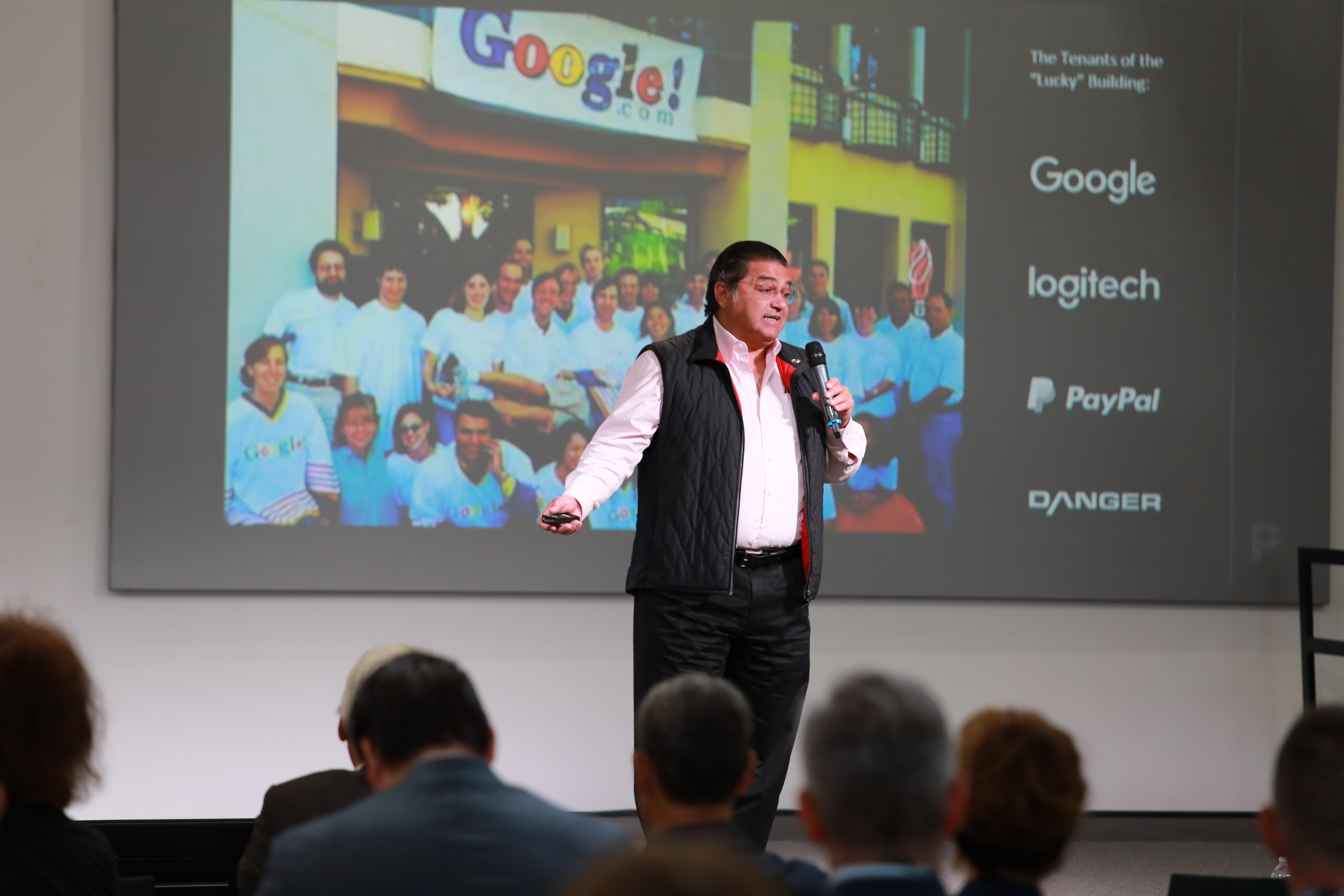Plug & Play CEO on Accelerator Landscape, Houston and Future of Energy Tech
Published Jul 27, 2020 by A.J. Mistretta
Over the last few years, Houston has seen incredible momentum in the development of its innovation ecosystems. Several notable Silicon Valley companies have relocated or expanded their operations in Houston including Bill.com, along with the major cloud providers Google Cloud, Amazon AWS and Microsoft.
The region is also home to a growing base of successful venture-backed start-ups making a difference across energy, aerospace, and life sciences. To support this growth, notable national accelerators have also been flocking to Houston, including Plug and Play, MassChallenge, Capital Factory and Greentown Labs.
We recently sat down with Plug & Play CEO Saeed Amidi and discussed his decision to expand into Houston. Below, Amidi lays out the Plug and Play model, Houston Energy industry, and how the COVID-19 pandemic has impacted the digital technology sector.
Can you tell us about your background, and how the idea for the Plug and Play model came about?
I grew up in Iran and come from a family of entrepreneurs. Our family had several businesses that included manufacturing of textiles, shoes, and pharmaceutical supplies. During the Revolution, these businesses were nationalized, and my family fled our home country.
We eventually settled in the Bay Area. After attending Menlo College in the mid-80s, my father lent me a small amount of money, and I started my first business buying and exporting containers of polyethylene. My first big customer was Savola, a food conglomerate in the Middle East.
As this business grew, I eventually built another business bottling and delivering water. Additionally, my brother Rahim loves real estate and started buying and managing commercial real estate for the family. One of those buildings was a rug shop on University Avenue in Palo Alto, near Stanford.
In the late 90s, we had an employee - now well-known investor in his own right Pejman Nozad - who was very industrious and gifted in building relationships with all these young VCs and founders coming into our shop to buy expensive rugs. We had some space available and ended up leasing part of the building to Google once they got out of the garage. Other tenants of that building included PayPal, Logitech, Lending Club, and Danger, and it’s no surprise that that building is nicknamed the “lucky building” in the Bay Area.
My first startup investment was with Peter Thiel of PayPal. We agreed to two years rent up front and ended up investing half of it as equity. PayPal eventually sold to eBay for $1.5 billion in 2002. I continued to make small investments and rent space to founders.
In early 2005, my brother started looking for a bigger building where we could house startups, and we found a 180,000 square foot former Philips Semiconductor building in Sunnyvale for us to buy. We quickly filled it with startups. Our first tenant in that building was Canesta, which eventually was acquired by Microsoft.
This building is still our HQ where at any given time we have over 400 startups in residence. Around 2012, I started noticing corporations wanting to gain access to the startups in our building. State Farm and Volkswagen approached us to incubate some startups they were interested in, which we did. That was the light bulb moment where I realized our business could evolve to include industry themed accelerator programs for the benefit of corporate partners.
Fast forward to today, Plug and Play runs 50+ accelerator programs annually from our 30+ offices globally. Pitchbook named us the most active venture investor in the world in 2018 as we made 220+ investments (that’s 4-5 checks/week).
Of the many businesses my family owns, I spend most of my time with Plug and Play because it’s my passion. I encourage founders to listen to their customers and be opportunistic in pivoting their business.
What led to your decision to open the fourth U.S. Plug and Play in Houston, Texas?
It’s all about the right timing. In the spring of 2019, Mayor Sylvester Turner and other civic, academic, and business leaders visited our Silicon Valley headquarters as part of a Houston trade delegation. Our headquarters is a special place where thousands of founders have come to participate in our accelerator programs, seek funding, meet with our corporate partners, attend educational events, etc. We shared our story and model, and it seemed to resonate with Mayor Turner who then asked me to open an office in Houston.
Our team studied the feasibility of the energy market in Houston for our platform and we discovered the growing technology ecosystem and attributes of the city - the deep talent base, lack of early stage venture capital, large corporate base, and a desire to evolve - that made it a fit for what we are good at. We moved quickly and opened our Houston office in September 2019.
The COVID-19 pandemic has caused a serious disruption in economies across the globe. What kind of impact has it had on emerging startups and the technology sector overall?
Almost every industry and every startup has been affected by the pandemic.
Speaking generally for our portfolio companies, many have seen revenue drop and delayed milestones. The best founders have moved quickly and decisively to cut costs to extend runway. Our Ventures team have prioritized activities to provide more support to our startups through fundraising support, business development opportunities with our corporate partner network, and being a sounding board as they navigate unprecedented times.
History has many examples of companies such as HP, Microsoft, Whatsapp, Slack, and Airbnb being built during an economic downturn. Tough times make it easier to identify companies and founders that are adaptable and opportunistic, and my goal is to continue investing in them during this downturn. As an example, we made a follow on investment in our portfolio company (and now unicorn) ApplyBoard earlier in May.
The primary focus of Plug and Play’s Houston location is on energy and sustainability. How do you see the current state of the oil and gas industry impacting the focus of the companies you support?
We launched our Houston office with our Energy vertical with plans to expand with our other programs including Health, Supply Chain, and Smart Cities. The oil & gas industry is up against an unprecedented economic environment right now. However, I am an optimistic person and choose to see the opportunity in these challenges. We believe this downturn has created a greater impetus for change in the industry, and we are here to help the industry adopt new technology solutions to improve and evolve. For example, several major corporations have recently committed to net zero or reduced carbon emissions. In order to achieve this, the industry as a whole will need to adopt new technologies and scale them together.
Are there any promising technologies in the energy industry that you are particularly excited about? How will they accelerate the global energy transition?
We are excited about increased digitization of assets and collaboration tools for workers. For example, our portfolio company Data Gumbo is helping to connect operators with their suppliers using smart contracts that facilitate both physical shipments and financial payments. This is a more efficient and simplistic way of completing these tasks compared to traditional pencil and paper. Similarly, we are always on the lookout for technologies that help to make our world more sustainable. There are many ideas that are reaching commercialization in sectors such as carbon capture and utilization and we want to back founders that provide an economically viable way to offset emissions.
How important will it be to work directly with the existing energy sector on developing new energy technology solutions and startup companies?
Long term economic viability of the oil and gas industry as well as the energy transition to come doesn’t happen without current players leading the way by developing new technologies and working with startups.
Keep in mind that startups need the existing energy sector to validate their solutions and scale. The existing sector is a great arena to find problems and use cases that smart entrepreneurs can build solutions for or can pivot their solutions towards.
What specific areas within energy tech innovation do you see the most opportunity?
All the above. We believe that the world is changing on many fronts to become both more sustainable and more digitally streamlined. At Plug and Play, we are casting a wide net to get to know companies impacting everything related to major global trends, such as getting a grapple on our carbon emissions and the proliferation of renewables and EVs. At the same time other well-known and explored areas are still ripe for innovation, such as energy storage and even worker safety-- an area we believe should be talked about much more.
How critical will it be for Plug and Play to leverage Houston’s talented energy workforce and recently laid off energy workers to launch new energy startups?
My anecdotal observation is that Houston founders tend to skew slightly older on average than founders in the Valley. This is great because they’ve worked in industries Houston is a leader in and have identified actual problems they can solve in novel ways.
I know that Houston has all the talent ingredients needed for the future. In my own hiring efforts for Plug and Play, I’ve discovered the deep and rich talent pool of engineers, sales and marketing professionals, and general business leaders. And the magic ingredient is the diversity of the city and general culture of tolerance and inclusivity.
We believe Houston is a great base and/or market for our portfolio companies because of the talent, affordable cost of living, large corporate base for customers, great universities in the area, and business friendly environment.
I believe a turning point for Houston’s economy will be when there is an increase in venture capital funding and a few exits. I look forward to having Plug and Play move the needle in seed and series A investments and have publicly committed to a goal of 10 investments/year in Houston.
Learn more about innovation in Houston and the region's digital tech sector.
 The Houston Report
The Houston Report




















